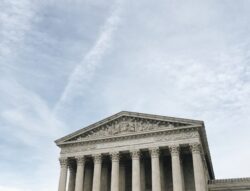COVID-19 RESOURCES
The National Housing Law Project has put together the following resources for attorneys, advocates, policymakers, and others for assistance during the COVID-19 national public health crisis. We will continue to update this with NHLP resources and other resources as they become available. Please email us with any additional resources to post.

Evictions Survey: What’s Happening on the Ground
Evictions Survey: What’s Happening on the Ground








